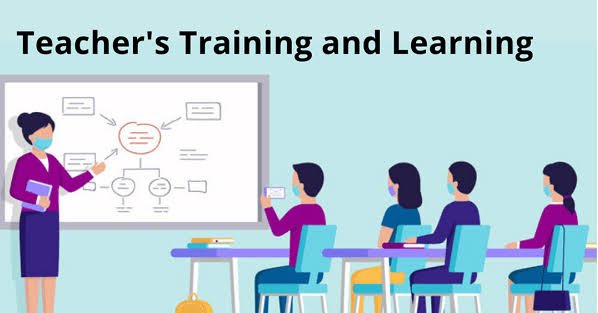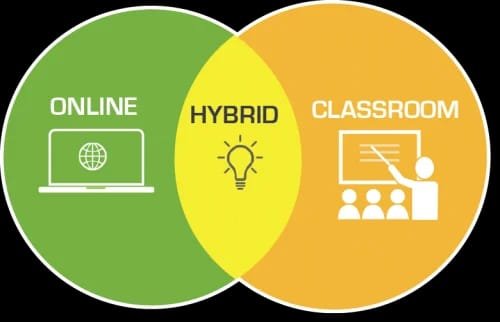Varanasi: In light of increasing crowd presence in the city, the duration of online classes for students has been extended until February 8. During this period, all physical school operations will remain suspended, and only virtual learning will continue. This directive applies to all government, aided, CBSE, ICSE, and other recognized Hindi and English medium schools within the district.
Online Classes to Continue for Urban Schools
With an aim to ensure uninterrupted learning for students, the district administration has mandated the continuation of online classes in all urban schools. This move is expected to ease congestion in the city while allowing students to continue their academic progress from home. The decision comes as part of precautionary measures to manage the growing footfall in Varanasi, especially around key public places and educational institutions.

Physical Classes to Continue in Rural Schools
Unlike urban schools, institutions located in rural areas will function as usual, conducting in-person classes as per their regular schedules. The education department has clarified that the crowd surge is primarily affecting the city, necessitating these temporary measures for urban schools only.
Administrative and Developmental Work to Continue in Schools
While students in urban areas will continue with online learning, teachers and administrative staff have been directed to remain present at schools for essential tasks. Key responsibilities include:
- DBT (Direct Benefit Transfer) and Aadhaar ID Seeding: Ensuring the timely completion of administrative tasks related to student records.
- School Infrastructure Maintenance: Activities under Operation Kayakalp, such as school repairs, painting, and sanitation improvements, will be carried out.
- MDM (Mid-Day Meal) Arrangements: Schools will continue to manage mid-day meal distributions and related logistics for students who rely on this facility.
- Preschool Development (Bal Vatika): Teachers will engage in preparatory work for early childhood education programs.
Training Programs to Proceed as Scheduled
In addition to routine administrative functions, any ongoing training programs for teachers or staff will proceed as scheduled. District Basic Education Officer Dr. Arvind Kumar Pathak has issued strict instructions to all school authorities to ensure compliance with these directives.
Why Has the Decision Been Taken?
Varanasi, a major cultural and religious hub, often witnesses a surge in visitors, especially during festivals, special events, or religious gatherings. The recent increase in crowd presence has prompted authorities to take measures that balance public convenience with the academic needs of students. By shifting to online classes temporarily, the district aims to decongest key areas while maintaining educational continuity.
How Will Online Learning Be Conducted?
Schools have been advised to implement virtual learning through various platforms, including:
- Google Meet & Zoom: Video conferencing tools will facilitate live lectures and interactive sessions.

- WhatsApp & Telegram Groups: Schools will disseminate study materials and updates through these messaging apps.
- Diksha & Other Ed-Tech Portals: Digital learning platforms recommended by the government will be utilized for self-paced learning.
Impact on Students and Parents
While online education offers flexibility, it also presents challenges, especially for students who may lack access to digital devices or stable internet connectivity. Parents are encouraged to support their children’s learning by ensuring a conducive study environment at home. Schools are also expected to provide necessary assistance to students facing technical difficulties.
Challenges of Online Learning
Despite the benefits of online learning, students and teachers face multiple challenges:
- Digital Divide: Not all students have access to smartphones, tablets, or computers required for seamless virtual learning.
- Internet Connectivity Issues: Many households struggle with poor network connectivity, affecting students’ ability to attend classes consistently.
- Lack of Personalized Attention: Unlike physical classrooms, online learning limits real-time interaction, making it difficult for students to clarify doubts.
- Increased Screen Time: Extended exposure to screens can cause eye strain, fatigue, and decreased retention of information.
Measures to Improve Online Learning Effectiveness
To overcome these challenges, schools and education departments are implementing the following strategies:
- Low-Bandwidth Learning Solutions: Utilizing lightweight learning apps and pre-recorded lectures to ensure students with slow internet connections can access lessons.
- Printed Study Materials: Distributing printed assignments and study materials to students who lack digital access.
- Frequent Feedback Mechanisms: Encouraging students to participate in online quizzes, assignments, and interactive sessions to enhance engagement.
- Teacher Training Programs: Conducting workshops for teachers to improve their digital teaching methods and ensure better delivery of lessons.

Parental Involvement in Online Education
Parental support is crucial for the success of online education. Here’s how parents can assist their children:
- Setting a Routine: Establishing a fixed schedule for online classes, breaks, and homework.
- Creating a Dedicated Study Space: Allocating a quiet and comfortable place for studying to reduce distractions.
- Monitoring Screen Time: Ensuring that children take regular breaks from screens to prevent eye strain and mental fatigue.
- Encouraging Interactive Learning: Engaging in discussions, helping with assignments, and motivating children to participate actively in virtual classes.
Future Course of Action
The district administration will continue to monitor the situation and may revise the directive based on crowd control measures and public safety considerations. If the situation improves, schools might reopen earlier; otherwise, further extensions could be considered.
Possible Scenarios
- Schools Reopen on February 8: If the crowd situation stabilizes, offline classes will resume as per the regular schedule.
- Extension of Online Classes: If congestion persists, authorities may extend online learning for another phase.
- Hybrid Learning Model: A mix of online and offline classes may be implemented, ensuring both safety and academic continuity.

Long-Term Impact of Extended Online Classes
The shift to online learning, while temporary, raises important questions about the future of education in India. Some of the key long-term effects include:
- Greater Digital Integration: Schools are now more likely to integrate digital tools into their regular teaching methodologies, even after resuming offline classes.
- Increased Government Focus on E-Learning: The education department may invest more in online infrastructure, ensuring students have better digital access.
- Shift in Student Learning Habits: With repeated exposure to online learning, students may develop independent learning habits, relying more on digital resources than traditional classroom settings.
- New Teaching Approaches: Teachers are adapting to new digital pedagogies, incorporating more multimedia, gamification, and interactive methods into their teaching styles.
Conclusion
The extension of online classes in Varanasi reflects the administration’s proactive approach to managing public movement while safeguarding students’ education. As urban schools adapt to virtual learning, authorities remain committed to maintaining smooth academic operations. Parents, teachers, and students must collaborate to ensure the success of this temporary transition, making the best use of available digital resources.

While the current situation presents difficulties, it also opens up opportunities to innovate and enhance digital learning experiences. Schools, parents, and policymakers must work together to bridge the gaps in online education, ensuring that students continue to receive quality learning experiences despite external challenges.
Stay tuned for further updates on school reopening and any additional measures that may be implemented in response to the evolving situation in Varanasi.







